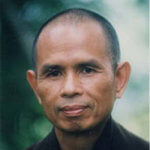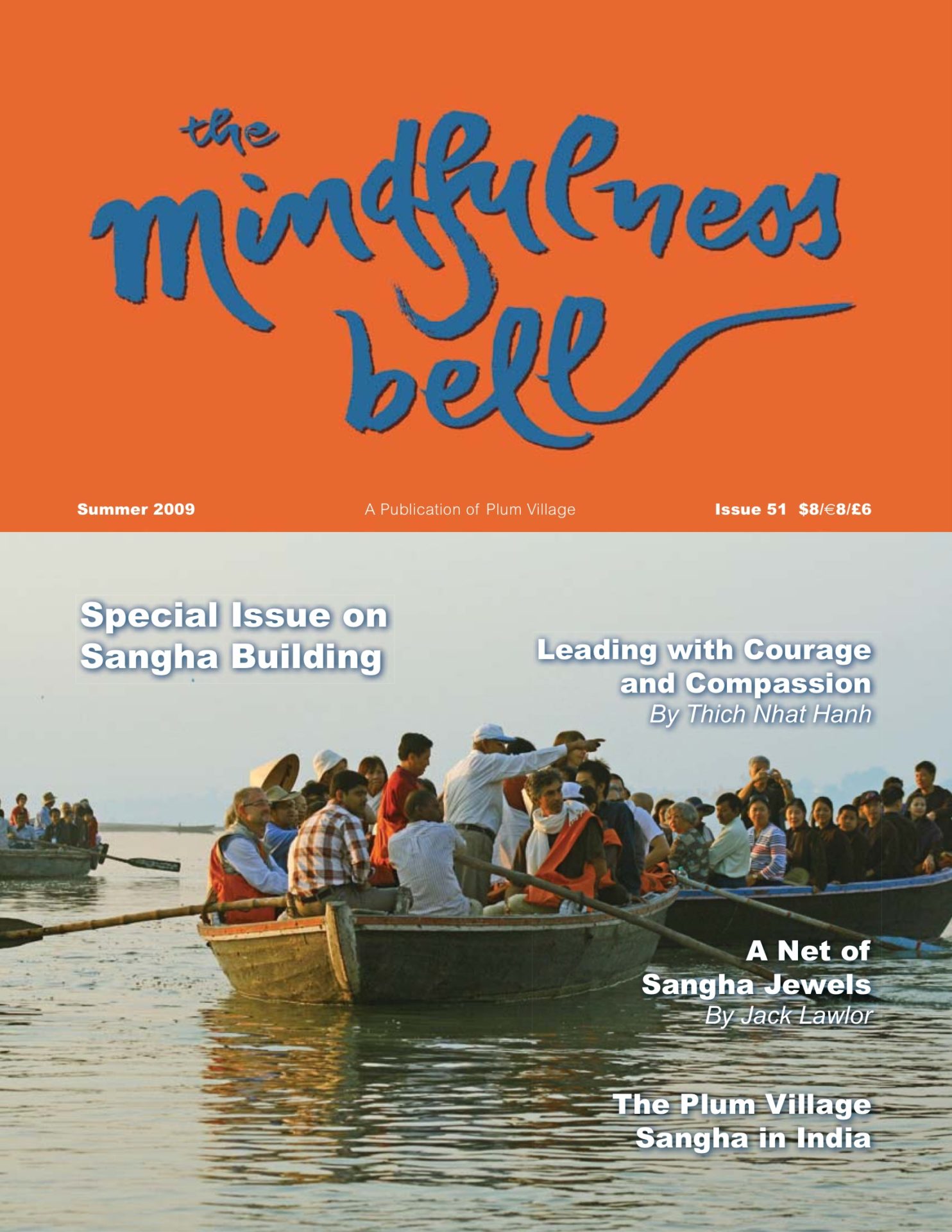By Thich Nhat Hanh in June 2009
It’s very precious to have someone show us how our practice is going. When a friend shines light on our practice we benefit greatly, because we have many wrong perceptions that can keep us in a prison of self-pride. That is why when we are offered guidance, we can make progress very quickly.
Find a friend, a sister or a brother in the practice whose way of looking at you is different from your way of looking at yourself.
By Thich Nhat Hanh in June 2009
It’s very precious to have someone show us how our practice is going. When a friend shines light on our practice we benefit greatly, because we have many wrong perceptions that can keep us in a prison of self-pride. That is why when we are offered guidance, we can make progress very quickly.
Find a friend, a sister or a brother in the practice whose way of looking at you is different from your way of looking at yourself. Then ask them with all your heart: “Please, be compassionate to me. Please shine light on me, and help me and guide me in my practice.” It’s important that you ask them with all your sincerity, because sometimes we are proud or angry and the other person doesn’t dare tell us the truth—we have a precious jewel but we cannot use it. The person will sit down and practice looking deeply with love and with care, telling you about your strengths and your weaknesses.

Then you ask that person to suggest another five people you can ask. If you chose just one person, you might pick someone who you think would just say positive things about you. The people who you want to shine light on your practice may not be the same people who have been suggested. If you really don’t want to ask a person who has been suggested, you can always discuss it. But you need at the very least six people in the Sangha to shine light on you, though you can ask sixty people if you like. The more people who shine light on your practice, the more light there will be in that darkest place of your suffering.
Listen carefully to what the people say who shine light on your practice. It doesn’t matter whether you agree or disagree with them; pay attention to everything exactly as they say it. It takes time to look deeply into what they have said. Perhaps those people have seen something you haven’t been able to see about yourself. If you think that maybe your brother has a wrong perception of you, you can go to him and say, “Please tell me, why do you think this about me?” Each person you ask will have some wrong perceptions, that is true. But the guidance that you receive will make your understanding of yourself more correct, and the fruit of your practice will be greater.
If you are the person who shines light on a friend’s practice, use all of your wisdom and understanding. Avoid manifesting irritation or blame as you offer advice, and deliver your words with care, love, and insight. Find the good qualities, the precious things in that person, and remind them of the positive elements that are available to them.
Then you talk about their weaknesses and their negative tendencies. You do your best to look clearly into the suffering and the obstructions of that person. And if you need to, you can ask other people to help you to see that person’s suffering clearly. Why can’t that person be happy? Maybe they have habit energy from the past that does not allow them to enjoy the present moment. Maybe that habit energy is one of being too hasty. Perhaps they received that tendency from their grandparents. That is not their fault.You don’t blame anyone—you don’t take all the responsibility on yourself or put all the responsibility on the other person. We are both responsible for each other. So no blaming and no punishing, because those things are not helpful. You only need to look deeply, and that will give you compassion.
If the other person has obstructions and internal formations, you ask yourself, “How have I contributed to this?” We often think that the other person doesn’t want to practice, doesn’t want to transform, doesn’t practice loving speech, or doesn’t practice listening deeply, and we don’t see our part in it. Then ask yourself, “How have I contributed to making that person freer and happier?” If you can identify your words and actions that have helped the other person, you are happy. But if you see that you have not helped them much, you promise yourself that from now on you will be more positive in helping that person.
Offering guidance in this way is a wonderful practice, benefiting not only the one who requests it, but also the ones who practice sitting down and looking deeply into the conditions and the personality of that individual. When we look after the other person, we are looking after ourselves.
Take refuge in each other. Support each other. That is a method of practice.
This is an excerpt from Friends on the Path: Living Spiritual Communities by Thich Nhat Hanh, compiled by Jack Lawlor (Parallax Press, 2002).


